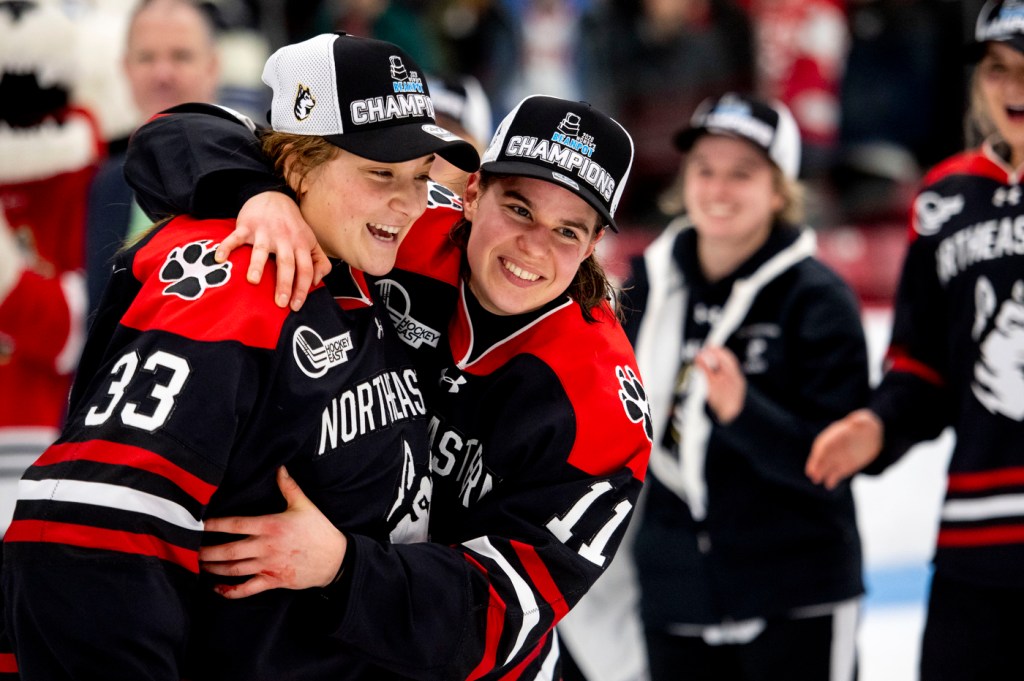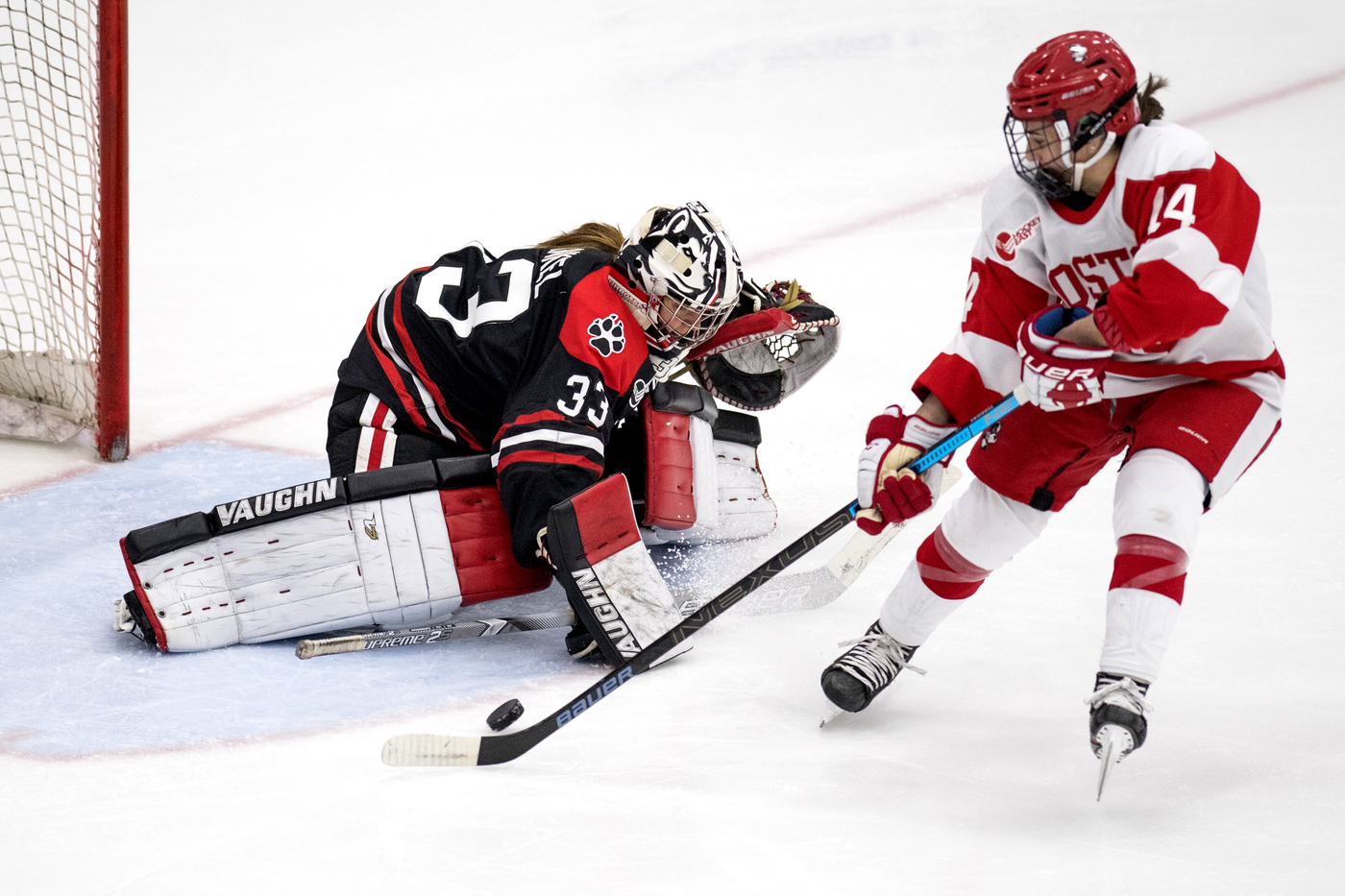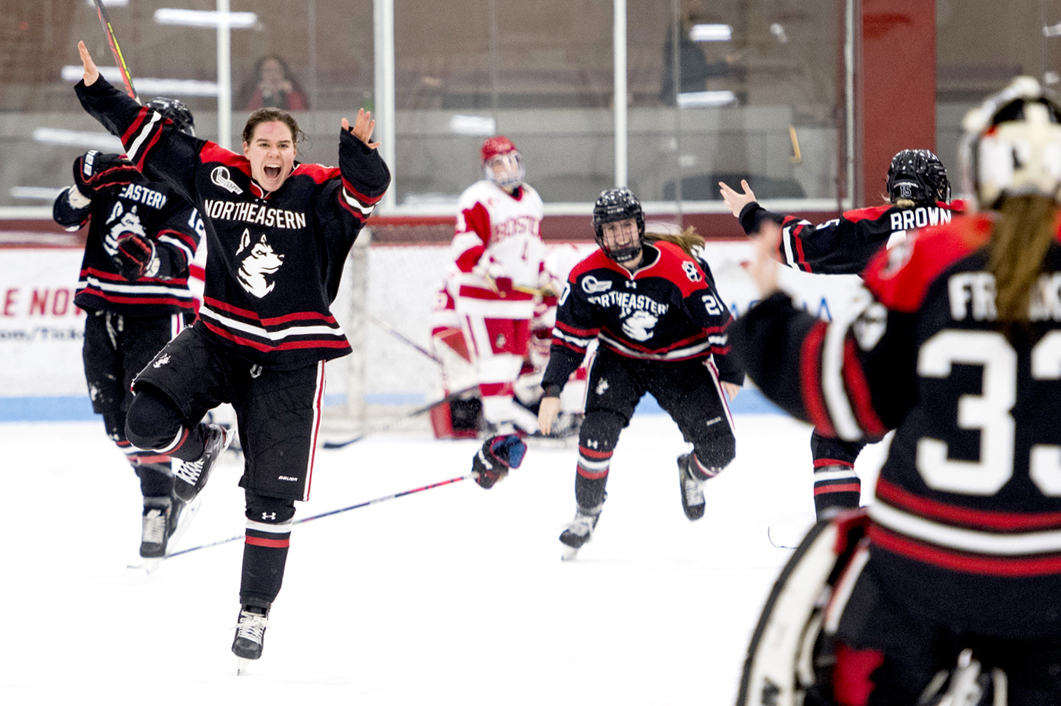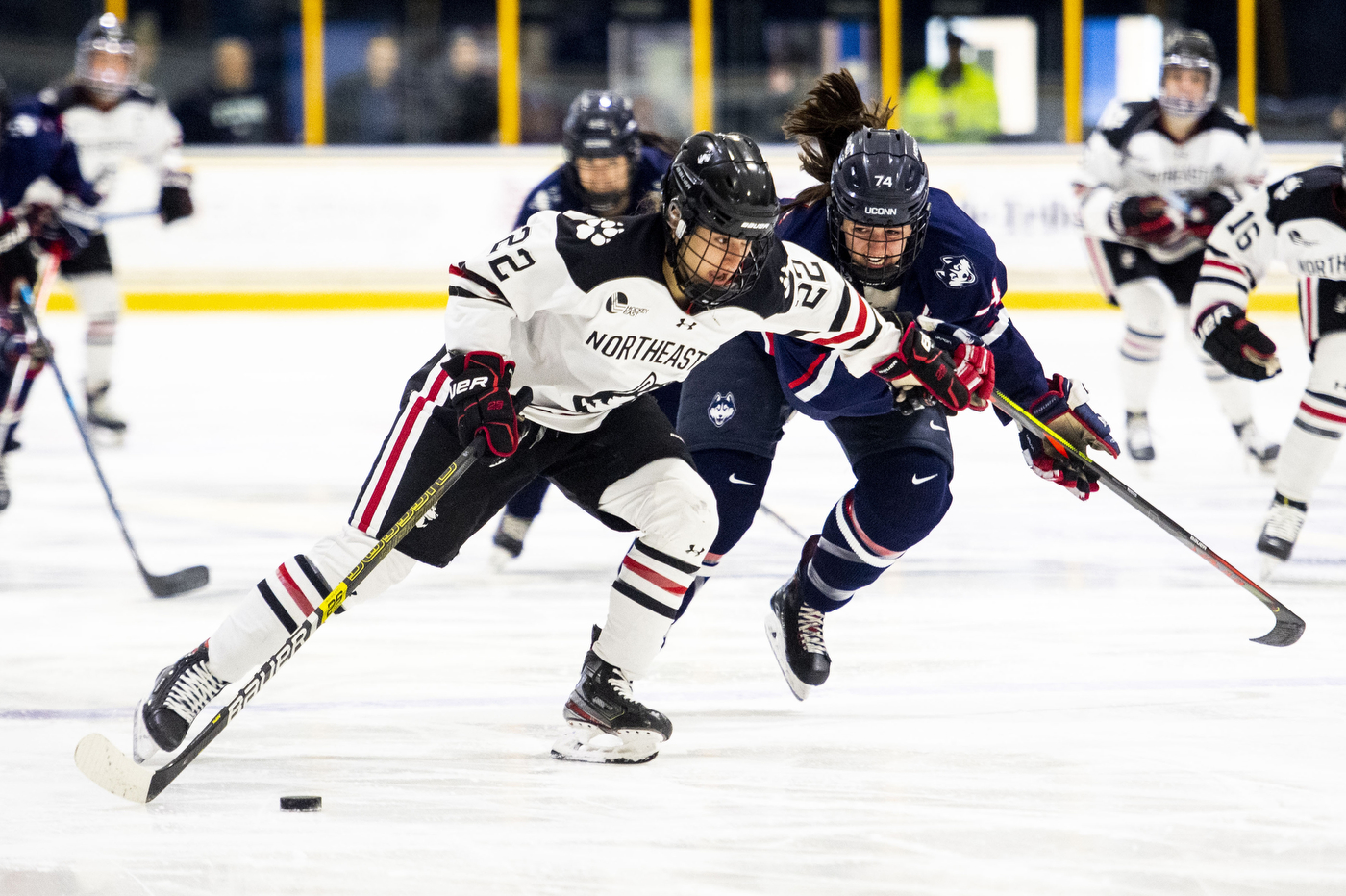Alina Mueller dreamed of winning a national championship. Then COVID-19 arrived.

Alina Mueller and her Northeastern teammates were dressing for practice with high hopes for the fortnight ahead. They were playing their best hockey of the season, they were ranked No. 3 nationally, and they were three wins away from winning the NCAA championship.
Then, in their Matthews Arena locker room, coach Dave Flint told his players that the NCAA Tournament had been canceled in response to the COVID-19 pandemic.
“People were crying,” Mueller said. “I had tears when I saw the seniors were crying. It just hurt a lot.”


The next day, Flint asked his players to return to the ice for an informal scrimmage. He wanted them to skate together one more time, to say goodbye and end their season in a more cathartic way.
“It was a good idea,” Mueller said Friday from her hometown of Winterthur, Switzerland, where she is planning to spend the next several months. “It was still kind of sad and we were not enjoying it. But then we were on the ice again, and we were together.”
Instead of celebrating the national title they were expecting to earn at the NCAA Frozen Four last Sunday, the Huskies have been forced to account for needs larger than their own. The devotion to a shared goal on behalf of each other and their school has been replaced by a commitment to responsible isolation. The desire to save lives during the COVID-19 pandemic has superseded dreams of all kinds around the world.

“I’ve never experienced this,” Mueller says. “You always say that sports or hockey is not the most important thing—you just say it. But now you really feel it. And you can’t be mad at anyone, because it was the right decision. Because now there is so much more than just hockey.”
She was speaking less than 90 minutes after learning that the Patty Kazmaier Memorial Award had gone to Elizabeth Giguere, a junior forward from Clarkson University. Mueller had been among three finalists to be named the top player in NCAA Division 1 women’s hockey.
“She had an amazing season. She deserves it,” Mueller said of Giguere. “I wasn’t hurt at all by it. I’m only a sophomore, and I was really happy to be in the top three. It meant a lot.”
So ended this year of abrupt conclusions. The seasons of other U.S. sports organizations had already been postponed or abandoned when the NCAA canceled its women’s hockey tournament before Northeastern (32-4-2) could play its March 14 quarterfinal at Matthews against No. 6 Princeton.
The Huskies recognized their lost opportunity: The Frozen Four would have been played two miles from campus at Agganis Arena in Boston, essentially making them the home team for the closing two NCAA rounds. And they were coming off a defining 9-1 victory over Connecticut in the final of the Hockey East Tournament.
“We were peaking at the right time,” said associate head coach Nick Carpenito. “Our players knew they were good, but I don’t know if they knew how good they actually were. They have a confidence about them, but it isn’t an arrogance.”
That fine line was embodied by Mueller, who led the Huskies with 27 goals and 39 assists in 38 games.
“If you watch our celebrations, when she’s on the ice and one of her teammates scores, Alina goes absolutely nuts—she’ll jump in the air 100 feet, she’ll run to the teammate and give her a big hug,” Carpenito said. “But if Alina scores, unless it’s a big moment, she acts like it’s not a big deal. It’s another day in the office for her.”
Carpenito’s favorite moment was a simple goal that Mueller scored in January against Connecticut. The Huskies had been preparing that particular play from the soft area, and the sight of Mueller so quickly assimilating and executing the sequence was affirming of her talent.
“Alina Mueller is the best player in the world—I feel very confident in saying that,” Carpenito said. “She’s just so complete. It’s incredible to watch her every day.”
After campus housing was closed in response to the guidance of public health authorities, Mueller moved briefly to New Jersey, where she stayed with her older brother, Mirco Mueller, a defenseman for the NHL’s New Jersey Devils. She flew home to Switzerland on Thursday.
“It’s strange with all of the restrictions,” she said of her flight. “You can’t touch anything. It’s hard to sit still for eight hours.”
She will be taking classes online and training at home in hope that the pandemic can be curtailed in time for next season. Apart from the departure of seniors Paige Capistran, Codie Cross, and Matti Hartman, the Huskies promise to be deeper and more experienced than ever. Virtually all of their statistical leaders will be returning, including goaltender Aerin Frankel and defenseman Skylar Fontaine (who both joined Mueller on the All-America teams this season) as well as Beanpot MVP Chloe Aurard.
No one will be hungrier than Mueller.
“I know personally I can be even better,” she said. “I know people say you can’t be at your best every game, that you will have bad days, and I just don’t believe it. If you love the sport and you’re healthy, I think you can be the best every time.
“I’m happy for how the season went for the team. We accomplished all that we could, and all the goals that were able to be achieved. But I just know that personally I want to be the very best.”
Last year, the Huskies’ dream was stopped by a season-ending hand injury to Mueller. This time around, despite their achievements—including their first Beanpot title since 2013—the season ended prematurely. Their pursuit of the national championship is demanding of them the resilience and expertise of Fidelio, the opera that Beethoven needed a decade to compose.
Mueller hopes that she, her teammates and their families will be spared by the pandemic, so that they may ultimately be strengthened by their recent experiences.
“I think we will play hockey differently now,” Mueller said. “We will enjoy it even more. We will know now that nothing is to be taken for granted.”
For media inquiries, please contact media@northeastern.edu.






